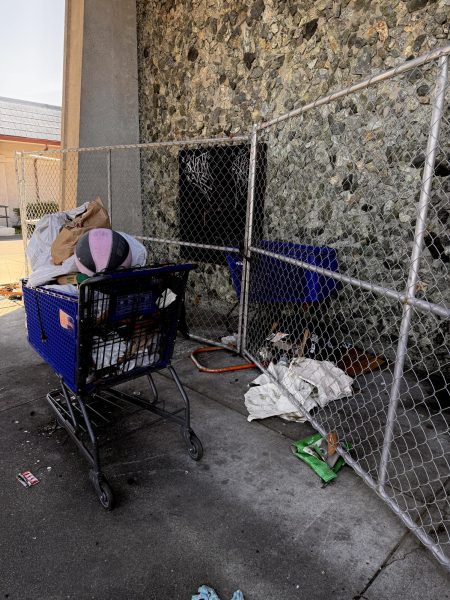Milpitas forms marijuana committee
City passes temporary ban in response to Prop 64
On Nov. 8th, 2016, 57 percent of Californians voted yes on Proposition 64, at which point the consumption and growing of marijuana for recreational purposes became legal throughout the entire state. In January the recreational sales of marijuana will go into effect.
However, the passing of Prop 64 conflicts with the current laws in many California cities. So, cities must now update their laws regarding marijuana.
Milpitas is one of those cities. Any form of marijuana is currently prohibited there. When Prop 64 passed, the city had to decide if they wanted to change their current laws to reflect California’s new policies on recreational cannabis businesses or continue to prohibit it.
In January Milpitas city officials quickly and unanimously passed the urgency ordinance to ban marijuana. This ordinance temporarily extends the ban on marijuana until Feb. 21, 2018. It gives the city more time to decide whether or not they will allow commercial cannabis growth or sales within their jurisdiction.
“It would be like a wild west, there’d be no laws in place,” Milpitas Mayor, Rich Tran told the Pioneer. “It’s new. So that’s why we had to do the urgency ordinance. It just makes sense.”
The city had not yet received feedback from the community on whether or not they even wanted cannabis businesses in their neighborhood. If the city delayed updating their current laws, there was potential for anyone to open up a dispensary in Milpitas without regulations in place.
Normally, an ordinance requires public hearings and a proper vote for approval from city council and specialized committees. An urgency ordinance skips these steps. In order for Milpitas to avoid this wild west cannabis scenario in their jurisdiction an ordinance to ban marijuana couldn’t wait.
Milpitas officials still have not decided if they want to allow cannabis businesses to open in their city. Until the ban ends in February, whether for medical or personal use commercial growing and selling of marijuana remain banned. And if they do allow it, there needs to be regulations in place regarding permits and fees. If they do not allow it they will still need to update their zoning codes.
A subcommittee for marijuana was quickly formed and began meeting in February. Their latest meeting was on Oct. 9th.
They outlined 3 possibilities for what could come next for cannabis businesses and Milpitas. They can extend the temporary ban for another year, which will allow more time to review possible regulation change, they can permanently allow commercial cannabis use, or they can permanently prohibit commercial cannabis use.
Milpitas is one of 15 cities in Santa Clara county that has to make a decision regarding the law change. Fourteen cities currently have laws in place that prohibit all forms of marijuana. San Jose is the only one which has allowed medical marijuana businesses like dispensaries and delivery services to operate in their city.
“Not every city in town is chomping at the bits to get this going,” Courtney Ramos, vice president of the Matrix Consulting Group told the Pioneer, “A lot of them are taking their time. Which I think is important, to do what the residents of the city want.”
Ramos believes that deciding to allow or prohibit cannabis in their jurisdiction is the biggest obstacles for cities right now.
The Matrix Consulting Group works with jurisdictions to make sure that their codes and ordinances are ready to deal with the new cannabis laws. This includes making sure city’s zoning codes are up to date, making sure they proper permits in place and that they charging the appropriate fees. Whether or not a city decides to allow cannabis businesses in their city, their current regulations regarding marijuana need to be updated.
Approximately 51 percent of Milpitas residents voted yes on Prop 64. Mayor Tran is one of them. However in January, he stated his opposition to dispensaries opening in Milpitas on his Facebook feed. The resulting comments from locals reflected the polls and showed that the community is essentially split down the middle.
Tran told the Pioneer that he supports the state’s policy regarding cannabis but that he is trying to get the vibe of the community.
Some residents agree with Tran that Milpitas is not the place for marijuana businesses because of the community’s children and lack of space available for businesses. Other residents express support for cannabis businesses in their city. They don’t want the city to lose out on the potential gain in revenue.
“I mean, we have plenty of liquor stores throughout the city. I don’t really see the difference in having dispensaries,” Marlaina Skiver, a Milpitas resident, told the Pioneer. “As a parent it’ll be my job to teach my children about the rules and what’s okay and what’s not. Just having a dispensary in the city shouldn’t affect them.”
“I don’t thinks Milpitas is the right place for this at all,” one Facebook user wrote, “We don’t need the trouble it will bring we have a great community and let’s keep it that way.”
For now, many issues remain for the community to discuss before February. The Milpitas subcommittee on marijuana gives residents an opportunity to speak on these issues during the public forum portion of their meetings. Their most recent meeting on Oct. 18th was cancelled. There is currently no date set for when they will be meeting next.









